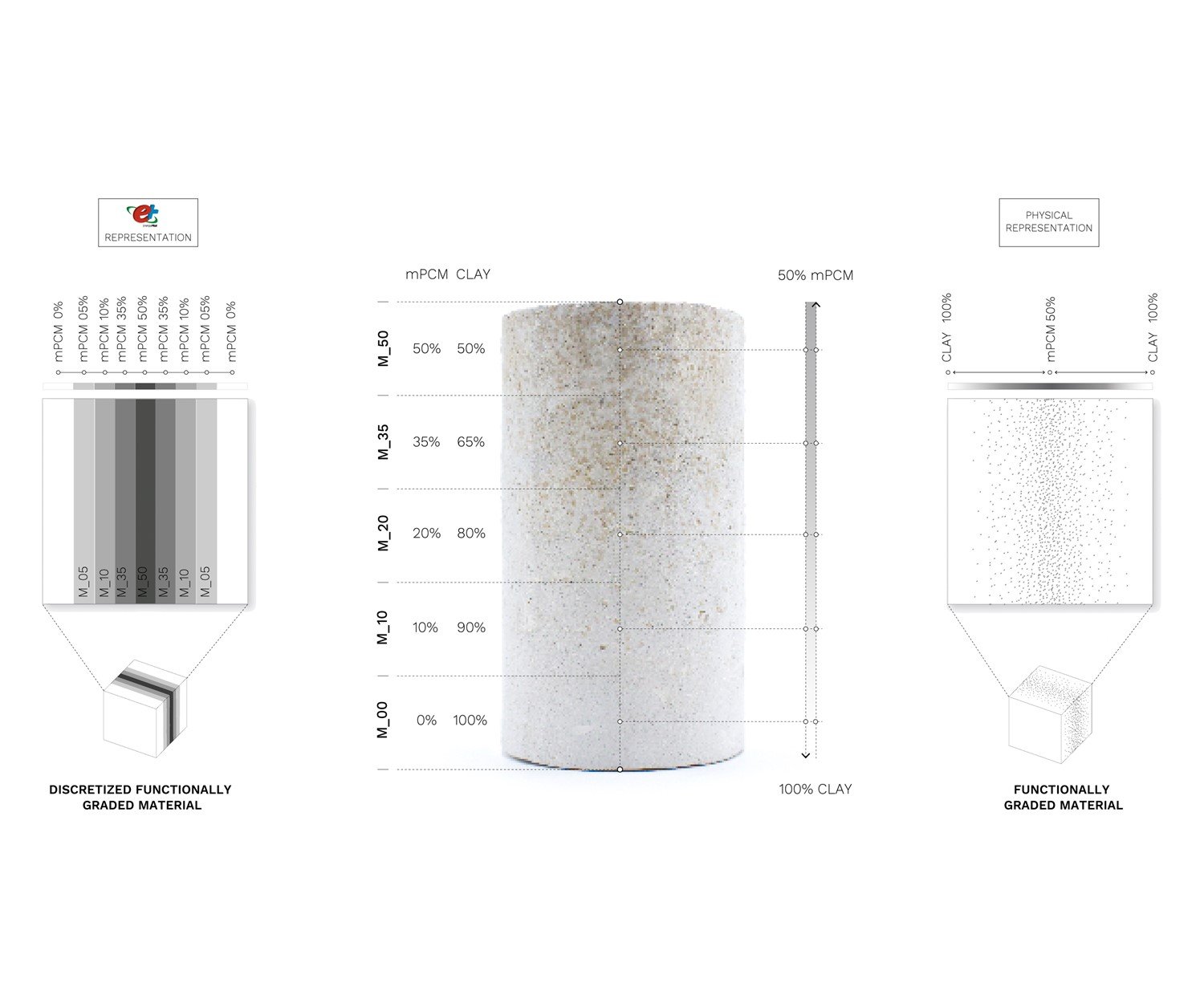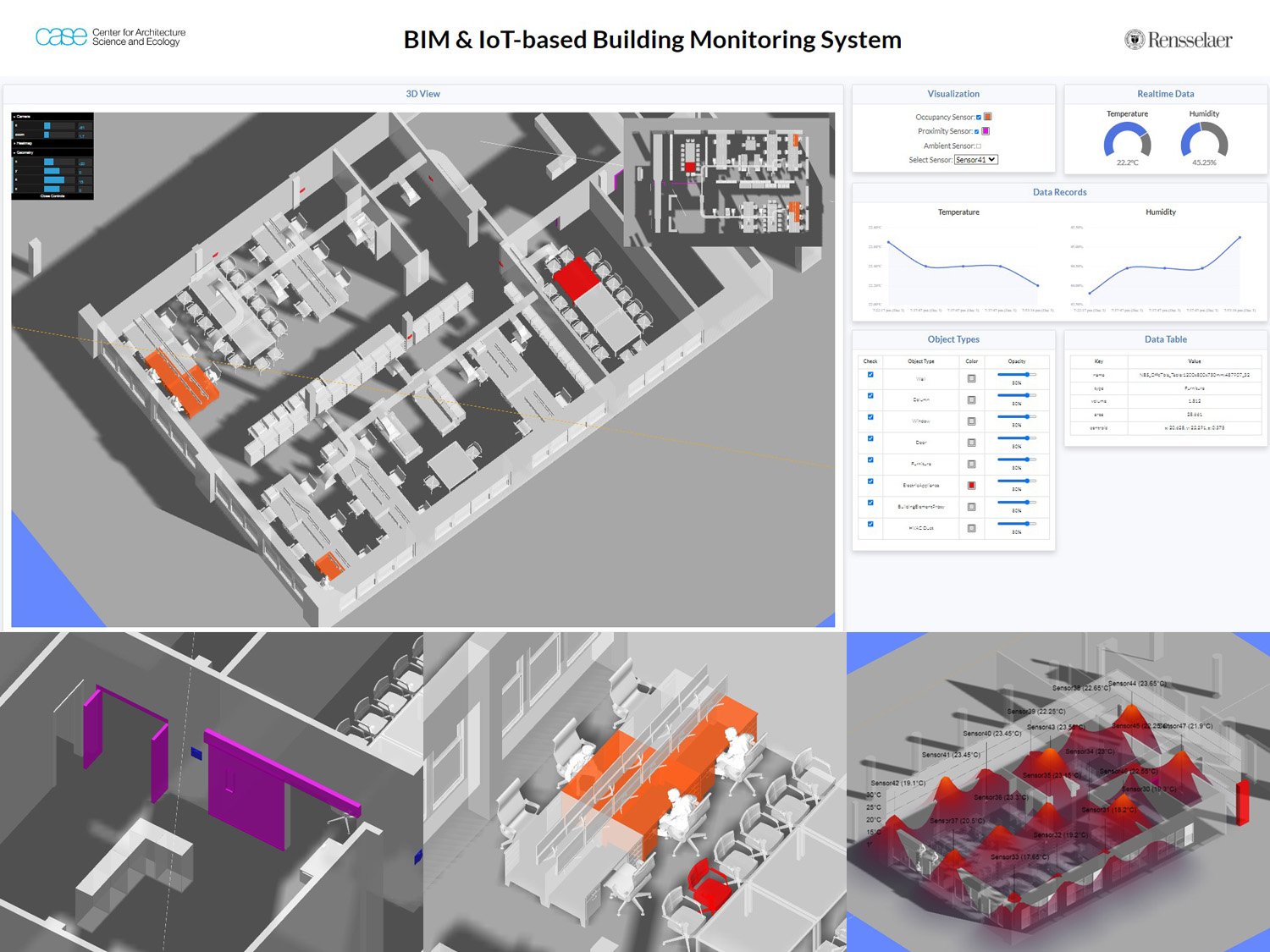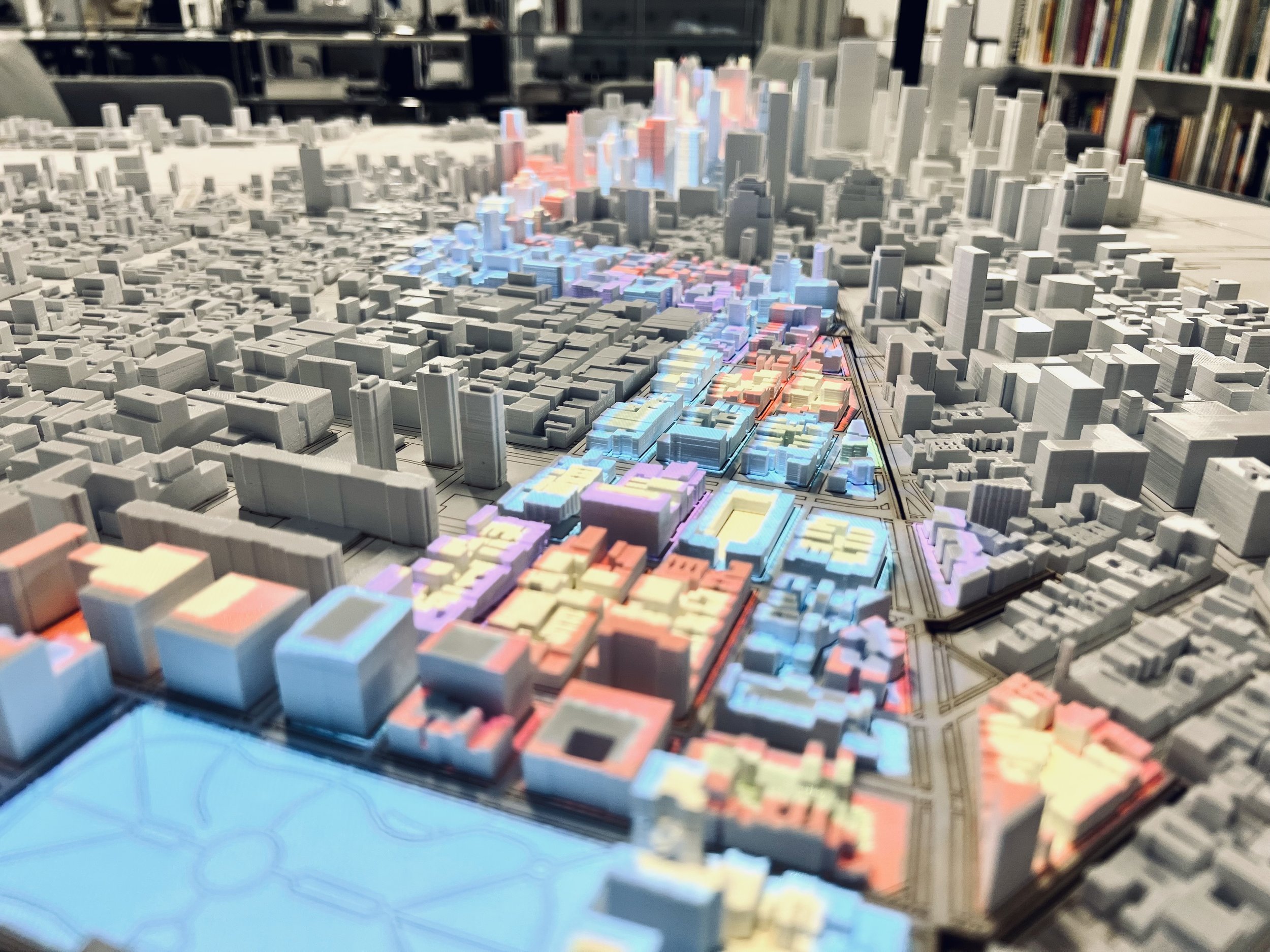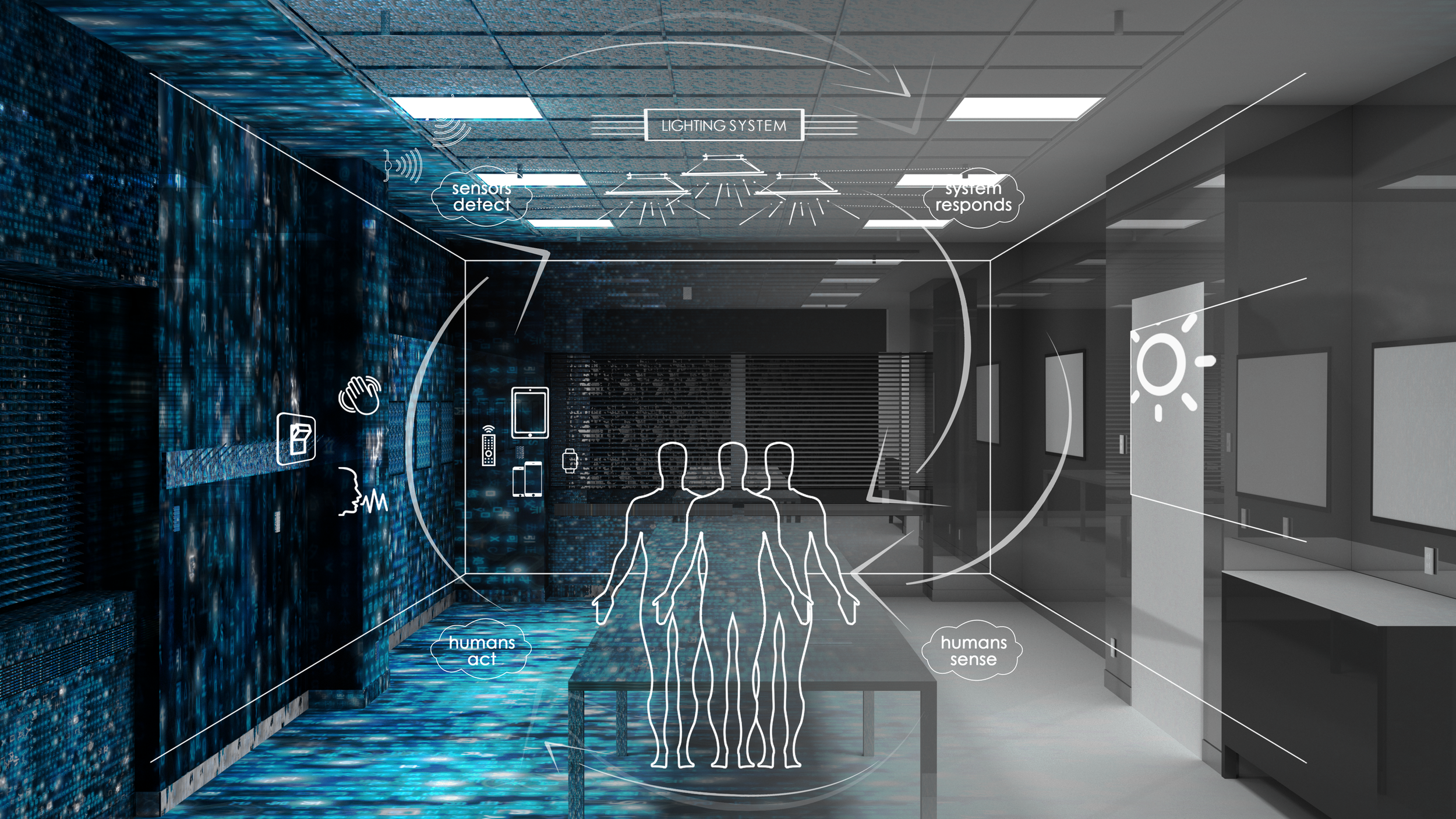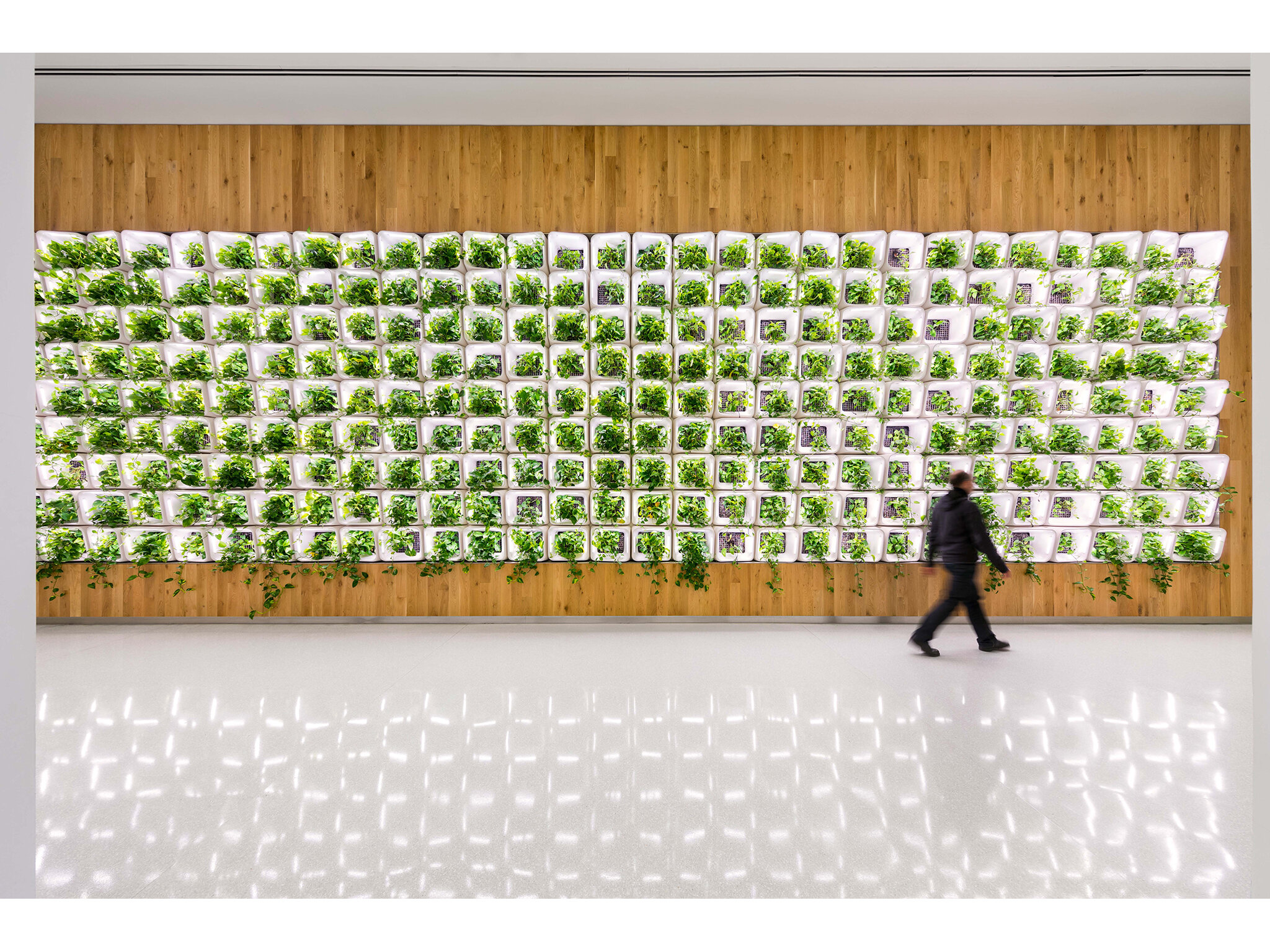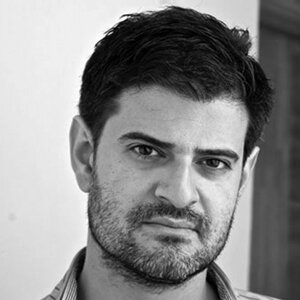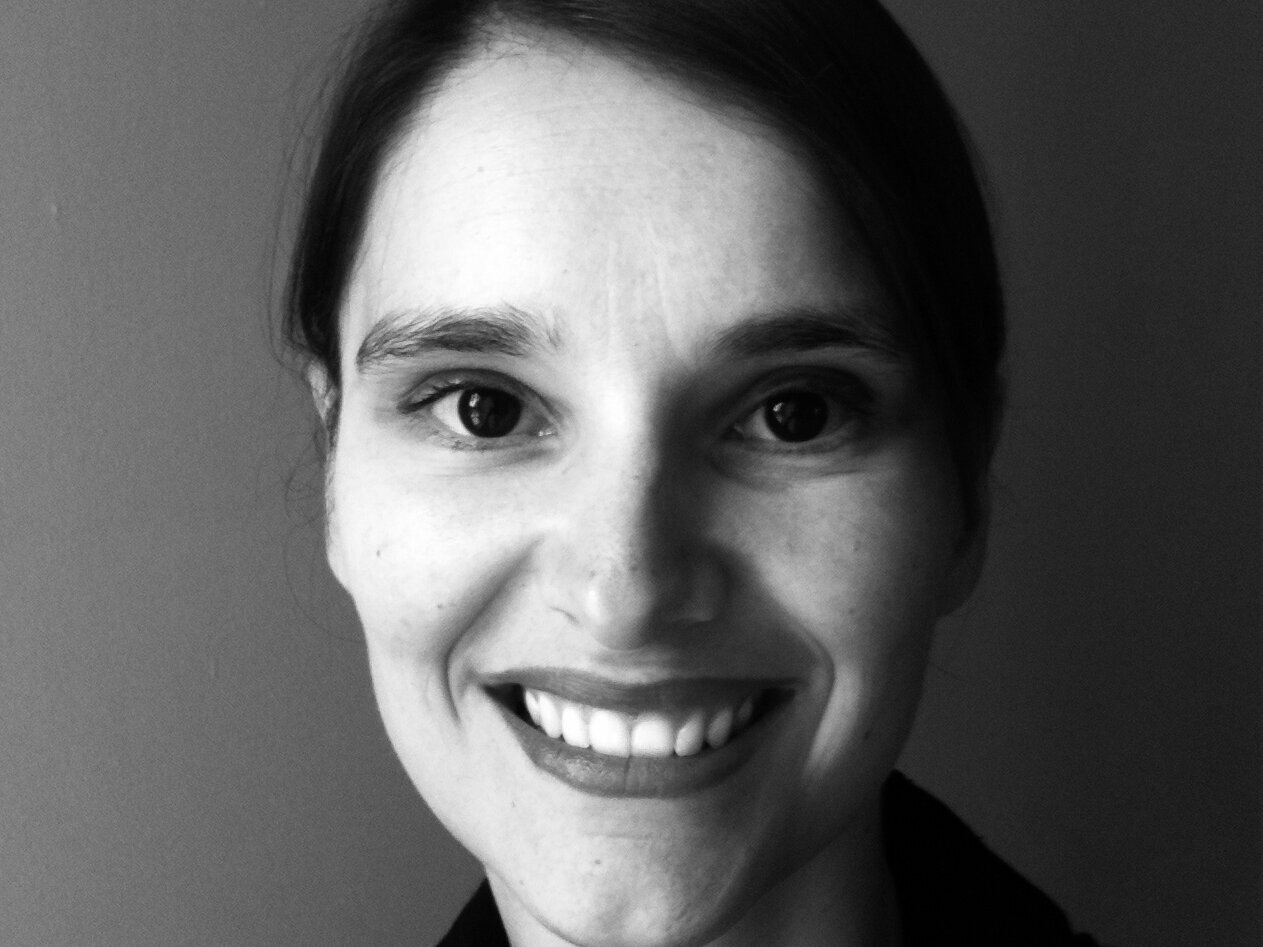Built Ecologies
Master of Science in Architectural Sciences
Doctor of Philosophy in Architecture
Built Ecologies is a unique Master of Science in Architectural Sciences and Ph.D. program catering to students aspiring to pursue professional, academic, or entrepreneurial careers. Tailored for individuals with a background in Architecture, Engineering, or similar, the program delivers an advanced study curriculum focused on the development and demonstration of next-generation material, energy and information technology to effectively address - across scales - the Environmental and Social challenges associated with the Built Environment.
Instruction within the Built Ecologies program encompasses both traditional and emerging disciplines, situated at the intersection of architecture, science, engineering, and the humanities. Students acquire comprehensive knowledge and expertise in designing, developing, and demonstrating radically new environmentally benign building materials and methods, renewable energy systems, and smart building and urban environments, potentially working with architecture firms and manufacturing partners to demonstrate real-world applications.
To apply please visit the Rensselaer graduate applications website or email program director Alexandros Tsamis at tsamia@rpi.edu.
Program Director, Built Ecologies
Alexandros Tsamis, tsamia@rpi.edu
Learn More
Request more information about the Center for Architecture, Science, and Ecology
Curriculum Overview
“Research with a Socio-Ecological frame of mind is as much a matter of Fact as it is a matter of Fiction” . Alexandros Tsamis
The Built Ecologies program distinguishes itself through its innovative curriculum, incorporating an Open Studio format for the development of Master's Theses or Ph.D. Proposals. This unique studio provides students with a rigorous and creative educational structure to identify, develop, and demonstrate their research projects. Unlike conventional Master’s or Ph.D. thesis seminars, the Research Studio adopts a hands-on approach, seamlessly integrating theory and practice within a cohesive Design/Research educational environment. In the first semester, students define a thesis topic, learn to comprehend it as an "inter-scalar" and cross-disciplinary ecological system, establish a specific vision, and engage in a series of design “experiments” to uncover its unique aspects. In the second semester, students develop a rigorous design-research methodology, outline potential research hypotheses, execute their methodology, and identify their academic, professional, or entrepreneurial contributions. Beyond the studio, students participate in foundational seminars and independent research programs to cultivate an advanced understanding of materials, energy, and information as integral components of the built environment. They also acquire advanced knowledge in programming techniques for simulation, advanced building energy modeling, as well as novel materials and fabrication. All courses together, contribute from their point of view to the definition and execution of a successful thesis and/or Ph.D. proposal.
MS Program Curriculum: 30 credits to be completed in a minimum of 1 year (2 semesters + summer*)
Fall Semester
ARCH 6350 - Design Research Studio: Cr. 4
An Open Studio Course for the development of the thesis content for MS and 1st year Ph.D. students
ARCH 6310 - Environmental History and Theory: Cr. 3
A theory course that traces the history and theory of ecological thinking in Architecture as well as other disciplines.
ARCH 6320 - Built Ecologies 1: Cr. 3 *
A seminar course that introduces fundamental theory and tools for the calculation of heat, air, and daylighting flows for the built environment
ARCH 6340 - Material Systems and Productions: Cr. 3 *
A seminar course that introduces fundamental theory and tools for the evaluation of material properties and flows for the built environment.
ARCH 6990 - Master’s Thesis: Cr. 2
Bi-weekly meetings with a thesis advisor to work on the progress of the MS thesis.
*Other Electives are available
Spring Semester
ARCH 6360 - Interdisciplinary Research Studio: Cr. 4
An Open Studio Course for the development of the thesis content for MS and 1st year Ph.D. students
ARCH 6900 - Graduate Thesis Seminar: Cr. 2
A theory seminar course that allows students to articulate in a document their thesis (MS) or proposal (PhD) structure.
ARCH 6330 - Built Ecologies 2: Cr. 3 *
A seminar course that introduces advanced simulation tools for energy flows and project lifecycle.
ARCH 6810 - Research Design Seminar: Cr. 2
A seminar course that introduces data-driven ecological diagramming techniques for design research
ARCH 6990 - Master’s Thesis: Cr. 4
Weekly meetings with a thesis Advisor to work on the progress of the MS thesis.
*Other Electives are available
Ph.D. Program Curriculum: 72 credits to be completed in a minimum of 4 years (8 semesters)
In addition to the MS courses - which are optional elective courses for Ph.D. students - a series of non-architecture courses are elected by the Ph.D. students to acquire the skills and gain the knowledge required to successfully develop their Ph.D. dissertation. Students typically elect courses from other course offerings at CASE as well as courses offered at the Troy campus or Online. Mandatory courses for the Built Ecologies program are:
ARCH 6910 - Doctoral Seminar 1 Credit Hours: Cr. 2
Theory course that prepares students for their qualification exam at the end of the second year.
ARCH 6920 - Doctoral Seminar 2 Credit Hours: Cr. 2
Theory course that prepares students for their qualification exam at the end of the second year.
ARCH 9990 - Dissertation Credit Hours: Cr. Variable spanning 6 semesters
Bi-weekly meetings with a thesis advisor to work on the progress of the Ph.D. dissertation
Research Topics
The core of our MS and Ph.D. programs involves the development of an individual research project in close collaboration with a CASE faculty member. Research can be undertaken within a wide variety of interdisciplinary topics such as:
Renewable Materials for Construction. Bio Materials, Waste Materials, Circular Economy, Resilient Supply Chains, Environmentally Benign Composites…
Advanced Manufacturing Methods. Additive Manufacturing, Modular Construction, Composites Manufacturing…
Smart Buildings and Smart Cities. Smart Lighting, Cyber-physical Systems, Digital Twins…
Urban Renewable Energy Integration. Virtual Power Plants, A.I. Energy Planning, Local Energy Integration…
Energy Harvesting Storing and distribution Devices and Systems. Climate Adaptive Energy Systems, Energy Storage, Vitrual Power Plants, Controls…
Data-Driven Architecture, IOT. Project delivery, Environmental Monitoring, BIM integration, Occupant Behaviour Modelling…
Human Building Interaction, and Collaboration. A.I. Frameworks for Interaction, Human in the Loop…
Bio-mechanical systems. Phytoremediation, Air Pollution, Bio-Mechanical Feedback Systems, Urban Agriculture…
Faculty
Apply to Built Ecologies
Applicants are strongly encouraged to apply by January 1st. First consideration will be given to applications received by this date.
The rolling application deadline for the MS program is March 1st while for the PhD is January 21st. Submissions after this date will be reviewed on a case-by-case basis.
To apply please visit the Rensselaer graduate applications website or email program director Alexandros Tsamis at tsamia@rpi.edu.
A limited number of merit-based Research Assistantship positions are available for the Ph.D. Program.
A merit-based scholarship of 40% discount on tuition is available for the MS program. (All applicants to the MS program are automatically considered for this scholarship)
The GRE General test is not required for admittance to the program.
*After the end of spring semester, a summer, no-tuition 8 weeks period is required for the completion of the written portion of the Master’s Thesis.




